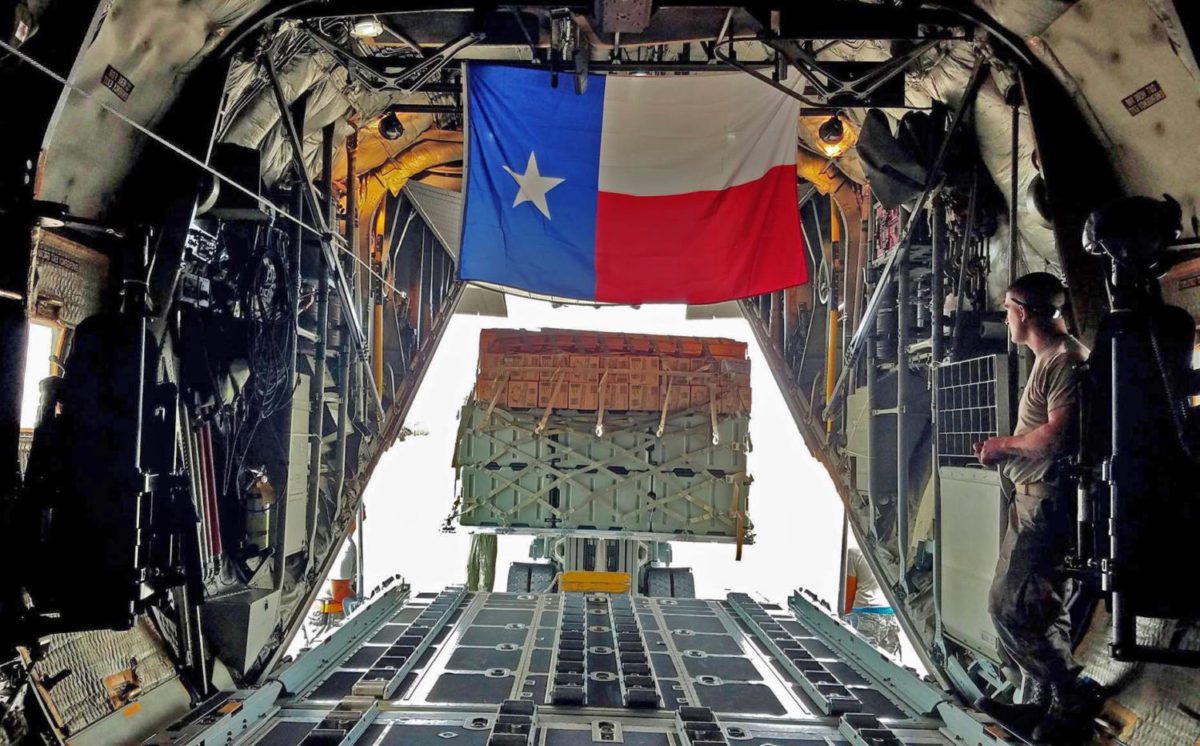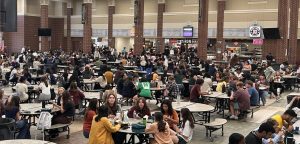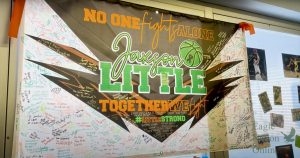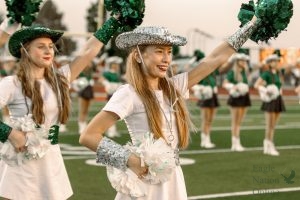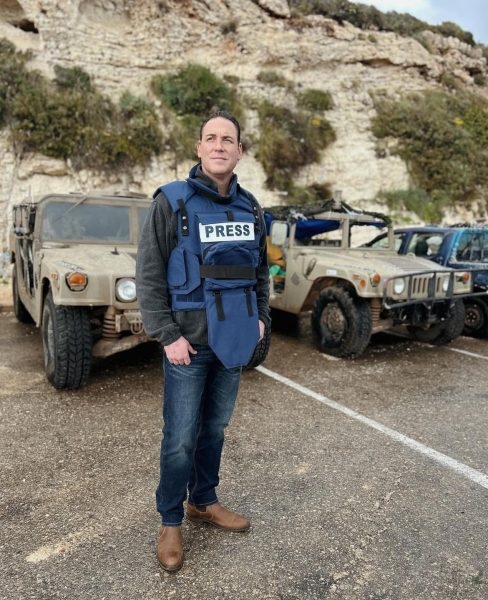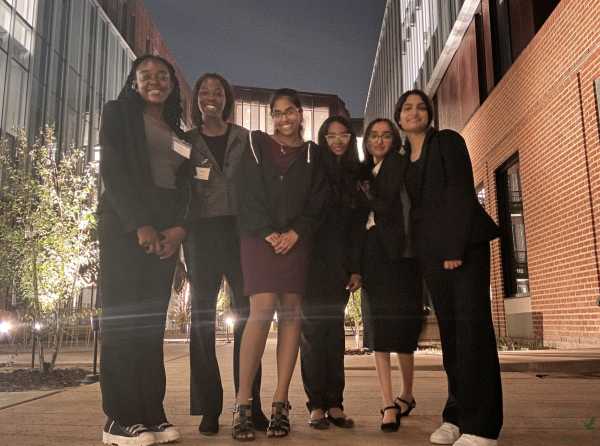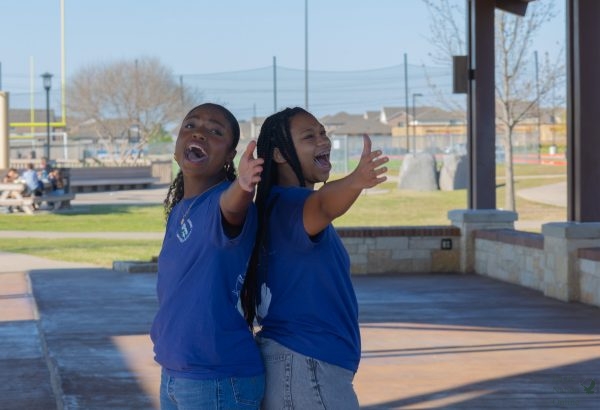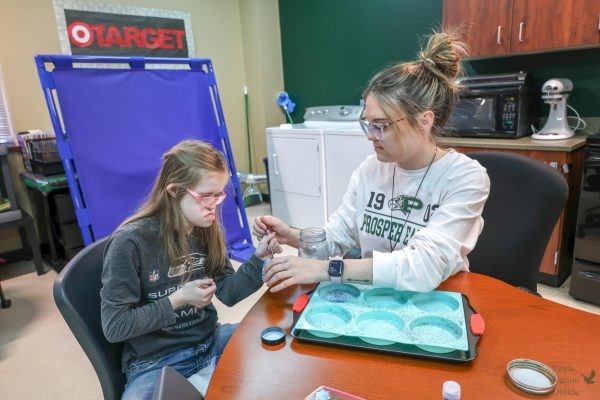Berliner serves in South Texas with National Air Guard after Hurricane Harvey
September 26, 2017
Engineering teacher Donald Berliner, a master sergeant, headed home from his weekend training for the National Air Guard when he was called to put his training to work. His unit had been called to active duty Aug. 28 to assist with disaster relief following Hurricane Harvey’s devastation in South Texas.
“For Hurricane Harvey they actually gave us a heads up the week before because we knew it was coming,” Berliner said. “So the Friday the last day of school before I got called up, we were actually having our regular schedule drill weekend.We all got out there and they kept talking about it and they were telling everybody ‘bring your stuff’. Over the weekend nothing happened that made them want to activate us, literally until about an hour until we had all went home. So a lot of us were driving home Sunday, and we got called and told ‘you needed to be back Monday morning.'”
However, the group experienced a delay when traveling to Houston due to the weather.
“So the first few days the weather hit, and we actually couldn’t get there because the visibility was so bad and there was so much water over the runways that we couldn’t land the planes,” Berliner said. “It took a day or two before we could get anybody down there to help out.”
Even when the group arrived in Houston, they were still concerned about several things, among which was the loss of power.
“The biggest fear that normally you have is the loss of power because that’s what makes it really hard for people to stick around and sustain,” Berliner said.”I mean the depth of the water as well, but as far as getting down there and being able to help, that’s the biggest thing that you have a problem with. It was about as bad as we expected, but the place that we set up operations, which is actually a little base right outside of NASA, did not need power so that kind of worked in our favor.
The crew was activated for two weeks, during which they served in several different parts of the area.
“We had multiple units going out different places,” Berliner said. “Some were setting up feeding areas, some were providing what they call pods, which are places of distribution. We had a unit go to Beaumont, and four different locations in Houston. We were actually flying troops down, dropping them off, picking up evacuees and flying them to DFW and then dropping them off. Then the plane went back to Fort Worth, picked up more people and it just kept doing that pretty much the entire first week.
Mr. Berliner had multiple taskings while in Houston. The biggest of which was the distribution of water and food.
“One of the bigger parts for me was actually procuring all the water,” Berliner said. “We distributed over 18,000 cases of water and were literally going around in Costco, buying everything they had on palettes and we would put it on 18 wheelers. Then we had to truck it to the base, get it on palettes, and get it on the planes. So a lot of what I did was just logistics.”
Personally, Berliner had four years of active duty in the Air Force right out of high school and had just finished his 10th year in Fort Worth. Prior to Hurricane Harvey, his group had not been called up for nine years.
“So my unit went up to Katrina, we were there for over a month,” Berliner said.”The next year we got called up to respond three times and then we literally went nine years without being called up until this month.”
The main differences between Hurricane Katrina and Hurricane Harvey was how people prepared for the after effects.
“For Harvey we were a lot better prepared, and it cleared up a little faster,” Berliner said. “But being as we were as prepared as we were and we got as much help as we did (we had units in from Wyoming, Oklahoma, Maryland, Georgia, they were flying in nonstop to help out), we didn’t have to be on the ground in the area as long as we did in Katrina.”
While away in Houston, Berliner was still able to keep up with his classes and stay on schedule.
“Luckily when I left Friday, I had the entire week 100 percent mapped out,” Berliner said.”We were working 12 hours a day, so literally about two or three o’clock in the morning when it got quiet and I was still at work, I would actually turn on the school radio and I would sit down and crank out some more lesson plans, and I would load everything into google classroom and I just kept right on going. I had people here making copies and it actually went incredibly smooth.”
Attached is a link to more of Berliner’s pictures during Hurricane Harvey: https://eaglenationonline.com/wp-admin/post.php?post=2042&action=edit


